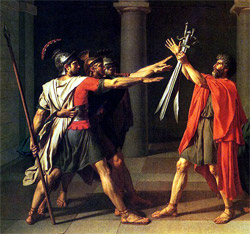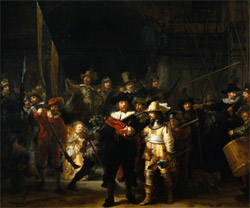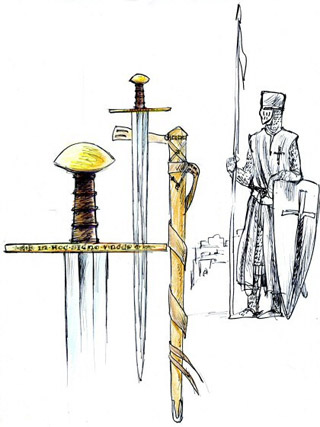Temporary Realm Page
Contents
The Northern Expeditionary Force
Expeditionary Commander: Lord Valens Soulja
Field General: None Currently
Head Chronicler: Dame Alinys Graves
Sir Andrew Dolohov
Sir Atwin Derhem
Dame Daenah Dragoria
Sir Geron Mochi
Sir Graeth Geg
Sir Kazm Kybar (?)
Soldiers Recruited: some 45 Infantrymen, some 40 Archers total
Status: Recruiting and Reorganizing in Golden Farrow, Duchy of the Good Realm Caerwyn
PROPOSED COLONY-REALM GOVERNMENT SYSTEMS
Feel free to add/edit as you please, and to discuss.
SUITABLY COOL NAME: IDEA 1
[[1]] - When we do decide on a realm, here's a link to a (the?) Banner Lab, run by Vecchioratto. He looks to have some nice realm banners; it'd be classy to grab one for our new realm. Thoughts on what it should look like?
Realm Organization
Titles, Ranks, Etc.
Technically a "Tyranny" so far as game mechanics are concerned, the actual set up of the new realm would have it functioning as more of a restricted republic or militaristic confederation. The organization of the new colony-realm would be as follows:
Ruler: Lord Commander
General: First Ranger
Judge: Lord Steward
Banker: First Builder
The Lord Commander himself would be elected by all members of the realm - to serve until he died or was no longer able - and would in effect hold most of the power: ultimate ruler, judge and general. He would also have full permission to appoint whomever he saw capable to lead beneath him in military, economic and judicial matters. Realm organization will be based on strict military principles, though in practice they may be more fluid; much of the day-to-day affairs of the realm would be run by what region lords (aka Stewards) it had: they, for instance, wholly responsible for their own knights, and et cetera, provided it fall outside military law - unless the infractions were great enough to be levied to the appropriate parties. Military affairs would be dealt with via Marshals (therefore the First Ranger or his second) and Lord Steward and, if it came down to it, by the Lord Commander himself if it was an exceptionally serious affair.
The Lord Steward would write the laws, provided they were met with the approval of the Lord Commander. He would also act in the punishment of any offending parties, provided the infraction is severe enough to warrant his immediate intervention. The First Ranger would lead the armies in defense of the realm, or offense if the need arose. The First Builder would help mantain the realm and her defenses.
This realm will not be a glorious place, nor a place of democracy - it would be a hard place, one of duty, and service to it could only end in death: be it by sword blade or old age or crippling illness. A man of this realm serves for life, unless granted special recompense by the Lord Commander, after he has taken the vow.
It would be, so far as anyone is concerned, a meritocracy - tenure would not matter as much as capability. Though some may argue you cannot have experience without tenure. Admittedly, once the Lord Commander was elected, meritocracy stagnates except in the appointment of the Lord Steward and First Ranger and First Builder - as well as other positions and posts such as that of the Stewards.
What then makes this realm different from any other proposed colony founding so far? What would keep it from becoming just another realm clone with a different name? See below:
One may join the realm at any time, and may leave at any time provided they came to the realm voluntarily - provided they have not yet taken the Vow. After taking the Vow, they cannot leave the realm except through death or extenuating circumstance as aforementioned and only then approved by the Lord Commander (and rarely.) Therefore, all unaligned nobles may be assumed to have not taken the Vow (unless it is known that they have) and in order to receive any substantial tax, they would need to find a region lord. No region lord would be allowed to accept their oath without being first given their Vow - sent to the realm as a whole - as a sign of their commitment and loyalty. Once the Vow has been taken, it cannot be broken. Desertion is punishable by death.
The vow would either by ripped off as following, or altered to give it a uniquely "Us" flavour:
"Night gathers, and now my watch begins. It shall not end until my death. I shall take no wife, hold no lands, father no children. I shall wear no crowns and win no glory. I shall live and die at my post. I am the sword in the darkness. I am the watcher on the walls. I am the fire that burns against the cold, the light that brings the dawn, the horn that wakes the sleepers, the shield that guards the realms of men. I pledge my life and honor to the Night's Watch, for this night and all the nights to come."
Example:
A new noble joins the realm and is unaligned, or has no tax. He may come and go as he pleases, provided he does not cause overmuch trouble. He wishes a tax, however, and so offers his oath to the Steward of a region. This Steward will then ask the unaligned noble, after first verifying that the young noble understands what it is he is getting into, to send a message to the entire realm reciting the oath. He is then pledged in life's service to the realm, receives a tax, and may renegotiate and et cetera as permissable. He may not, however, leave voluntarily.
Deported nobles would be expected to some degree (though by no means required) to return to the realm and finish their oath, if they were men of honour.
Military Matters
There would be three main armies, or groups: that of the Rangers (the First Ranger being also appointed Marshal of this, as well as holding "generalship,") the Builders (the bureacratic arm of the realm) and the Stewards (serving as mentors, lackeys of the First Steward, region lords and et cetera who would aide in the stability of the realm as a whole.)
-The Rangers (definitely an army, First Ranger as Marshal)
-The Builders (also an army, the First Builder appointed as its Marshal)
-The Stewards (probably more of a message group led by the First Steward, with all region lords in attendance and a select few underlings.)
This realm, whatever its name, would rely heavily on a sense of brotherhood and shared duty, of training and cohesion - of a camaraderie rarely seen these days among the nobility. While role play would, of course, be required since this is Dwilight it would also be a vital part of the realm's make up and it would be encouraged, seeing as this realm would likely be smaller and may threaten to stagnate without some sort of stimulation. The realm's main purpose is for the good fight, the long fight, the hard fight against whatever enemies threaten them. In between these wars, however, tourneys would be held - jousting, archery, swordsmanship - to keep skills sharp among those who patrol the dark.
Appointing Lordships and Dukes
While ultimate authority in the appointments of region lords is up to the Lord Commander, suffice to say he cannot be everywhere at once and usually has more important things to do. So far as low level region appointments are concerned (those of rural areas, townslands, anything not a City) it is usually left up to that region's longest serving Steward to decide. If for whatever reason there is no Steward in the duchy already, and the Lord Commander is too busy to see to the appointment himself, the Lordship is put up for vote by either members of the duchy, or the region. The knight voted best able to fill the position does.
In case of Duchies, and the appointment of Dukes, also called Stewards, things go differently. Obviously a much more important and prestigious command, one cannot simply allow it to a realm-wide vote or even duchy-wide vote; this would cause bickering and divisions among the men. Instead the other reigning Stewards discuss in private who best suited to join them, and put forth candidates to be judged among themselves. Likely candidates may be summoned for an interview in person. All candidates may be overturned by the Lord Commander, who serves as ultimate judge of character and ability.




